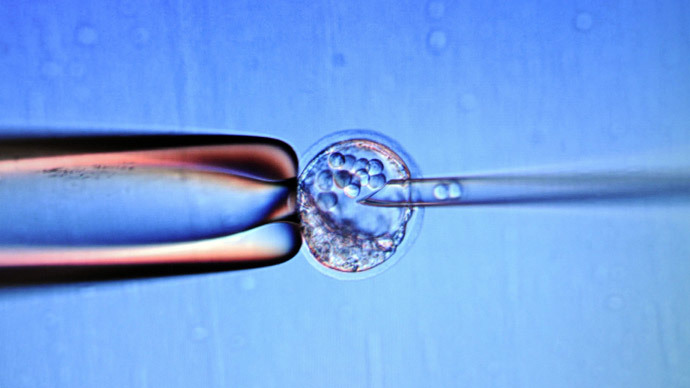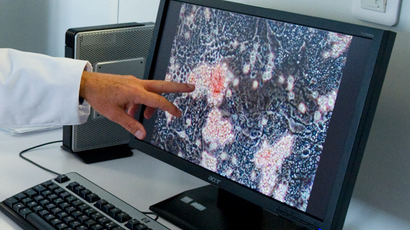Nobel in action: Japanese woman undergoes revolutionary stem cell transplant

A breakthrough stem cell transplant has been carried out in Japan for a woman suffering from an incurable eye illness. Japanese doctors say it’s the first-ever operation when adult cells were used to repair the damaged organ.
The two-hour surgery was completely successful, Japan’s Nikkei newspaper reported. It came seven years after the Kyoto University professor Shinya Yamanaka created induced pluripotent stem cells (iPS) – multifunctional stem cells that can be generated directly from adult tissues. The research later won him the 2012 Nobel Prize.
In this case, the cells were made from the patient’s skin, which prevents controversy over the use of embryos.

The patient is in her 70s and suffered from age-related macular degeneration, a disease when blood vessels crowd the retina, entailing visual impairment and blindness.
The surgery took place at the Institute for Biomedical Research and Innovation Hospital in Kobe, and was carried out by Yasuo Kurimoto, the hospital's head of ophthalmology, and Masayo Takahashi, the head of retinal regeneration projects at the Riken Center for Developmental Biology.
The patient is now reportedly in stable condition, according to the hospital, and is set to be discharged next week.
Due to the fact that so many vision cells died, the doctors don’t expect a major improvement in her eyesight – and if there is any, it’ll take a couple of years to show. However, the surgery could slow down the spread of the disease.
The possible side effect that concerns the scientists is that the implanted cells could become cancerous, so the primary goal of the operation was to prove that stem cells aren’t dangerous.
"We will have succeeded if cancer does not develop after a year," Yasuo Kurimoto said.














